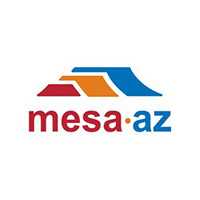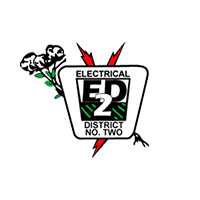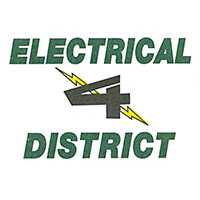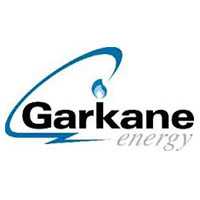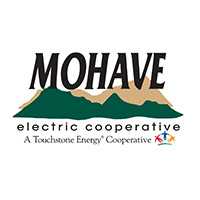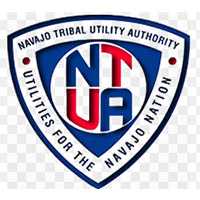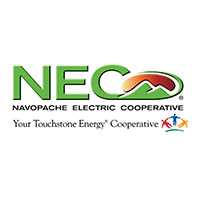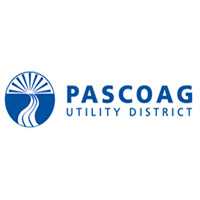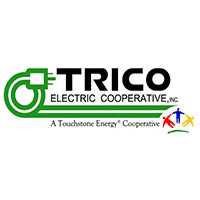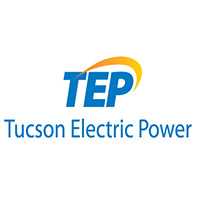Solar power in Arizona
Arizona has some of the best potential for solar in the United States. The state receives more sun than any other area in the nation, meaning a solar system can produce about 180% more than what it does in places like New York.
Policy changes and the reeling back of incentives has caused a bit of a challenge for solar in the state. Regardless, the federal solar tax credit and state-level tax credits combined with amazing sun coverage make going solar in Arizona a terrific option.
Compare solar quotes from the top solar companies in Arizona
Arizona solar power facts
$2.73 watt
Average cost: 5kW solar power system
?6 Years 1 Month
Average payback time
$103,746
Average lifetime savings
?4¢ kWh
Levelized cost of solar energy
28¢ kWh
If you don't get solar
?19,230 kWh
Annual power production
Cash flow graph based on cash purchase of a 12.02kW system
This 12.02kW system would offset 100% of your energy usage if your typical monthly bill in Arizona is $250, however, your situation may vary so try our solar calculator to get a result tailored to you.
6
Solar companies in Arizona that provide pricing through the SolarEstimate marketplace.
How much can solar panels save you in Arizona
Average total cost of solar panel installation in Arizona
| System Size | Cash purchase After 26% solar tax credit |
Financed purchase After 26% solar tax credit |
|---|---|---|
| 3kw | $6,371 | $6,881 |
| 4kw | $8,288 | $8,951 |
| 5kw | $10,101 | $10,909 |
| 6kw | $11,855 | $12,803 |
| 7kw | $13,468 | $14,545 |
| 8kw | $14,978 | $16,176 |
| 9kw | $16,450 | $17,766 |
| 10kw | $17,760 | $19,181 |
How much do solar panels cost in Arizona?
$2.73 per watt
Cash purchased solar system
Before 26% solar tax credit
$3.12 per watt
Financed solar system
Before 26% solar tax credit
$16.9¢ /kWh
Lease/PPA
Ave 15 year term, 2.5% price escalator
What are the pros and cons of installing solar panels in Arizona?
The advantages of installing solar panels include the federal tax credit and state tax credit. In addition to these incentives, Arizona receives the most sun in the US. This means that less panels are needed in order to completely wipe out your electric bill.
SolarPowerRocks provides a great breakdown of solar incentives and policy for each state within the US.
Disadvantages of installing solar panels in Arizona are the lack of state and utility solar incentives and the elimination of 1-for-1 net metering. However, the best time to switch to solar in Arizona is now - before the incentives that are in place run out.
Enter your details to calculate the potential costs and savings you can expect to receive from installing solar panels on your home.
Best solar companies in Arizona
Compare solar quotes from the top solar companies in Arizona
Best brands of solar panels
To find the best brands of solar panels you can use America's most trusted solar panel comparison and reviews website, SolarReviews.
However, reviews of solar panels can be a bit meaningless because most consumer owners have not had any issues and so while solar company reviews are very important when choosing solar installers they are of less use when choosing solar panels.
For more information to help you make an informed decision about this topic, I would recommend this article about buying solar panels.
How much electricity will solar panels produce in Arizona
Solar panels produce different amounts of energy in different locations.
Around the Phoenix area solar panels installed on a south-facing 23.5-degree pitch roof will typically produce:
1,752kWh
per year per 1kW of peak DC
(direct current) capacity
For more information about how your location, roof direction, and roof tilt affects solar power production use the solar panels calculator and enter your zip code.
I want to buy a solar panel kit and install it myself
What rebates, solar tax credits and other solar incentives are available in Arizona?
Solar energy credit
Arizona offers a great income tax credit for those installing solar devices. The credit is equal to 25% of the costs of the system, up to $1,000. If the amount you owe in income taxes is less than the amount of your credit, the excess credit can be carried over to the next year.
Tax exemptions
There are two tax exemption policies in place in Arizona: a sales tax exemption and a property tax exemption.
The solar equipment sales tax exemption states that sales tax will not be applied to qualified solar equipment. It also exempts sales tax from being applied to renewable energy credits (RECs).
Typically, a solar system would increase your property taxes. The energy equipment property tax exemption indicates that a solar system adds no value to the property for tax assessment purposes.
Net billing in Arizona
In 2016, Arizona replaced net metering with net billing, or a feed-in tariff. With net billing, customers will be credited at a rate for the excess energy they export to the grid. This is similar to net metering, except the credit a customer receives for exporting does not have to equal the retail rate of energy.
For example, Arizona Public Service Company (APS) provides an export credit to solar customers who export energy to the grid. This export credit is equal to $0.1045 for each kilowatt hour (kWh), which is less than their energy charge of $0.12393 per kWh on their premier choice plan. APS customers will receive the same export credit for 10 years.
Arizona Solar Calculator
Regardless of what you want to know about the economics of installing solar panels for your home or business in Arizona, we have a solar calculator that can show you exactly the information you require.
What you can find out about installing solar panels in Arizona using our full monthly solar calculator
This solar calculator requires you to input your address, utility company, your average monthly power spend - It tells you:
- What size solar system do you need?
- Answers the question of How many solar panels do I need?
- How many square feet of roof space you need for solar panels
- Solar electricity production in annual kWh (kilowatt-hours) you can expect from your solar system in Arizona
- The value of solar tax credits and other incentives you are entitled to based on the estimated size of system you need, your location and your utility provider.
- Likely cost based on an average of prices charged for solar systems of that size in the last year in Arizona or Phoenix ;
- The likely payback period on your solar panels and your investment return.
- Your total lifetime solar savings based on each of the major solar finance options, a cash purchase, a cash purchase funded with a HELOC sol (home equity line of credit) and a zero-down PPA or third party lease product.
If you want to see all of the above but also see live pricing, the three best solar deals available in your city and get binding quotes from each of these solar companies then use this Arizona solar panels calculator. This calculator requires you to also input your name and contact details because most of our 200+ installer partners will only authorize the sharing of their live solar pricing where we have validated that you are a real homeowner with a home in their service area. We respect the privacy of your data and only share your contact details with the solar companies you ask us to get binding quotes from.
Going solar in Arizona
Check out all of the ways energy providers of Arizona can help you be more energy-efficient and save money.
The following programs are available:
| Incentive Name | Eligibility | Type |
|---|---|---|
| Residential Renewable Energy Tax Credit | Federal | Personal Tax Credit |
| Residential Solar and Wind Energy Systems State Tax Credit | State | Personal Tax Credit |
| Solar and Wind Equipment Sales Tax Exemption | State | Sales Tax Incentive |
| Energy Equipment Property Tax Exemption | State | Property Tax Incentive |
| Net BIlling | State | Net Metering |
| Mohave Electric Cooperative - Renewable Energy Incentive Program | Utility | Rebate Program |
| Duncan Valley Electric Cooperative - SunWatts Rebate Program | Utility | Rebate Program |
Find your local rebates and incentives
Your city may have further incentives to offer. Please keep in mind that the best source of up-to-date information on incentives is the solar installers who specialize in your area.

